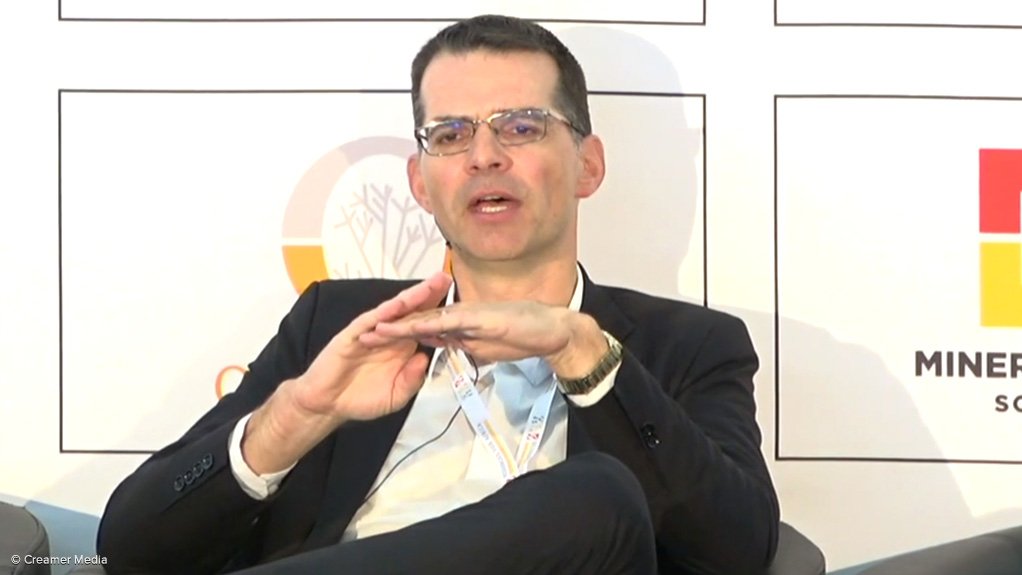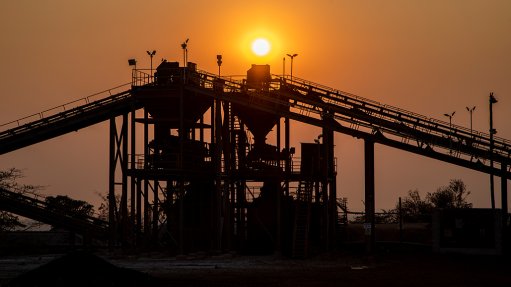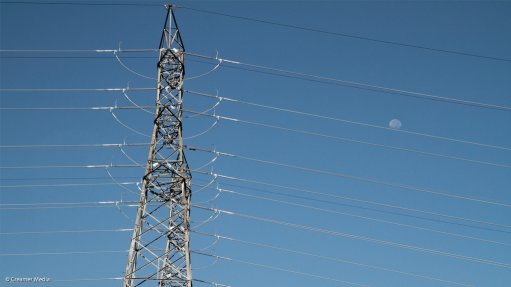Beneficiation should be company-driven – industry body



HUGO PIENAAR The Minerals Council South Africa advocates for a local beneficiation approach that focuses on incentives, rather than penalties
BENEFICIATION CONSIDERATIONS South Africa lacks a clear cut comparative advantage in mineral beneficiation
With South Africa lacking a clear cut comparative advantage in mineral beneficiation – such as specialised expertise, abundant and affordable electricity, or a competitive manufacturing base – companies should have the discretion to determine whether pursuing beneficiation is economically viable, says minerals industry organisation Minerals Council South Africa chief economist Hugo Pienaar.
“We do not support coercion to drive beneficiation, forcing developmental prices or setting quotas for local sales. These measures fundamentally negate basic supply and demand dynamics, and risk damaging the primary mining industry,” he stresses.
Relatedly, Pienaar also highlights the potential consequences of the introduction of tax on raw mineral exports, which he asserts will “hurt” the profitability of primary mining.
Typically, a response to these measures is for mining companies to choose to produce less of the respective mineral, resulting in lower export revenue and could lead to lower primary ores available for local beneficiation. As a result, introducing an export tax could undermine the goal of increasing local beneficiation.
Further, export taxes on ore could deter new investment in South Africa’s mining sector, as has already been evidenced by Statistics South Africa data that shows the country having experienced a significant decline in new mining projects, with the rate of new mine openings dropping notably since 1994, points out Pienaar.
Therefore, rather than imposing export taxes, he advises key constraints be addressed, such as the availability and affordability of electricity, in an effort to foster an environment conducive to growth and investment.
Further, Pienaar stresses that the government needs to comprehensively address the bottlenecks in electricity transmission and distribution to restore competitiveness with jurisdictions where electricity is secure and more affordable.
Energy Affordability
With the focus off loadshedding for the time being, the new concern is the cost of grid power, highlights Pienaar.
Through initiatives such as the National Energy Crisis Committee, along with private-sector investments in renewable energy, significant strides have been made to resolve insufficient electricity supply, he says.
Mining companies are increasingly investing in renewable-energy solutions, such as their own solar or wind plants, or power purchase agreements with third-party providers.
However, while complete independence from Eskom is unlikely owing to the need for significant baseload power of expansive and energy-intensive mines, Pienaar says investments into renewable energy nonetheless assist in stabilising mines’ power, lowering electricity costs and contributing to decarbonisation targets.
The increasing cost of electricity is also posing a major threat to the energy-intensive mining sector.
Pienaar explains that beneficiation processes are significant consumers of electricity, making the availability and affordability of electricity critical. Therefore, he says Eskom’s proposed tariff hikes are “inconsistent with promoting beneficiation”.
The Carrot Approach
Minerals Council South Africa advocates for an approach that focuses on incentives, rather than penalties, to encourage mineral beneficiation in South Africa and the revitalisation of the local mining sector.
Pienaar explains that this approach is crucial, as the local mining sector has contracted to roughly 85% of its 1994 size, making it now critical to encourage investment and stimulate growth in the industry.
Pienaar stresses that beneficiation of South Africa-mined minerals must not be considered in isolation, but rather as part of the entire mineral value chain, from exploration through to end-user applications.
In this regard, he proposes a variety of incentives that would be effective as part of a holistic strategy.
This includes direct financial support through government grants, which Pienaar states could play a pivotal role in encouraging local beneficiation initiatives by funding capital investments in processing facilities, research and development (R&D), or skills training.
In addition, government agencies can stimulate beneficiation by committing to serve as an anchor market for locally-processed products, thereby guaranteeing demand, enabling local miners to achieve economies of scale.
“To the extent that local beneficiated products are globally cost competitive, government procurement policies could prioritise the use of domestically-beneficiated metals or minerals in infrastructure projects, construction and public-sector manufacturing initiatives,” he explains.
Encouraging the presence of companies that focus on end-user applications for South Africa’s minerals is also crucial, as these offtakers can drive demand for locally-processed materials.
To achieve this, Pienaar explains that the government must create an enabling environment by offering tax incentives, reducing regulatory hurdles and improving infrastructure, such as reliable electricity and transport. This would make South Africa more attractive to companies that use beneficiated products, integrating them into the global supply chain.
Pienaar also underscores the importance of innovation and technological advancement for long-term beneficiation. Incentives for R&D, such as tax credits or government-backed research partnerships, would encourage local companies to develop new mineral processing techniques, improve efficiency and reduce costs. This could also attract international firms interested in collaborating on innovative beneficiation technologies.
“It is important that government does not [try to] force companies to beneficiate by taxing exports that are not beneficiated in-country. They [should] rather incentivise exports that are beneficiated. The approach is fundamentally different and allows companies to operate freely in an unconstrained market,” concludes Pienaar.
Article Enquiry
Email Article
Save Article
Feedback
To advertise email advertising@creamermedia.co.za or click here
Press Office
Announcements
What's On
Subscribe to improve your user experience...
Option 1 (equivalent of R125 a month):
Receive a weekly copy of Creamer Media's Engineering News & Mining Weekly magazine
(print copy for those in South Africa and e-magazine for those outside of South Africa)
Receive daily email newsletters
Access to full search results
Access archive of magazine back copies
Access to Projects in Progress
Access to ONE Research Report of your choice in PDF format
Option 2 (equivalent of R375 a month):
All benefits from Option 1
PLUS
Access to Creamer Media's Research Channel Africa for ALL Research Reports, in PDF format, on various industrial and mining sectors
including Electricity; Water; Energy Transition; Hydrogen; Roads, Rail and Ports; Coal; Gold; Platinum; Battery Metals; etc.
Already a subscriber?
Forgotten your password?
Receive weekly copy of Creamer Media's Engineering News & Mining Weekly magazine (print copy for those in South Africa and e-magazine for those outside of South Africa)
➕
Recieve daily email newsletters
➕
Access to full search results
➕
Access archive of magazine back copies
➕
Access to Projects in Progress
➕
Access to ONE Research Report of your choice in PDF format
RESEARCH CHANNEL AFRICA
R4500 (equivalent of R375 a month)
SUBSCRIBEAll benefits from Option 1
➕
Access to Creamer Media's Research Channel Africa for ALL Research Reports on various industrial and mining sectors, in PDF format, including on:
Electricity
➕
Water
➕
Energy Transition
➕
Hydrogen
➕
Roads, Rail and Ports
➕
Coal
➕
Gold
➕
Platinum
➕
Battery Metals
➕
etc.
Receive all benefits from Option 1 or Option 2 delivered to numerous people at your company
➕
Multiple User names and Passwords for simultaneous log-ins
➕
Intranet integration access to all in your organisation




















